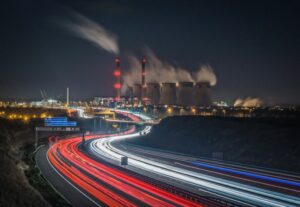What does ‘Just Transition’ mean?
This blog is more than a year old
What does ‘Just Transition’ mean?

The climate crisis is not just in the news, it is now the most important issue facing us according to the results of several polls (see here).
From Greta Thunberg addressing the United Nations through to campaigns for a Green New Deal, this is something people care about.
But grand ambitions also need well-crafted plans of action. Prospect believes that we need to follow the science. That is not surprising. As the leading STEM union, our members are amongst the world’s leading climate researchers and scientists.
The IPCC is clear that we need to keep global average temperature rises below 1.5C in order to stop the most damaging effects of climate change.
There is now, rightly, a lot of talk about the concept of a ‘Just Transition’. There is less talk, however, about what this actually means. If we want to tackle the climate crisis, we also need to think more about what this Just Transition will look like.

Here are 4 things that a Just Transition means, or should mean:
1. Investment in skills and infrastructure
Drastic reductions in our carbon emissions, and ending our reliance on fossil fuels, will mean big changes to key parts of our economy, including the energy sector, manufacturing, and transport. When we talk about major structural change, what we mean is people’s jobs, livelihoods and communities.
We need targeted, sustainable and concerted support to help workers displaced by decarbonisation, including relocation support where necessary, as well as retraining opportunities to help workers transition into new employment opportunities. If we want to get this right, we need to ensure workers and communities are supported through the process of transition and not simply left to bear the costs of decarbonisation by themselves.

2. A balanced low-carbon energy mix
Investing in low carbon energy infrastructure, as part of a wider green industrial strategy, to provide new sources of high-quality employment that offer equivalent terms and conditions to the jobs that are lost. If the target is net zero emissions, we need urgent and real investment in an energy mix to help us transition to low-carbon, that means investing in nuclear, reviving onshore wind, as well as other technologies — and doing so fast.

3. Protecting and creating high-quality jobs and employment
This isn’t just about new jobs, it has to be about good jobs. How often have we heard of high-skilled manufacturing jobs being lost only to be replaced by lower-skilled, precarious ones? How many new renewables companies recognise unions or give a voice to their workers? The UK is home to some of the most skilled energy workers in the world. Communities are built on the back of the pride people feel about their trades and work. If we don’t get that, we won’t get why workers are often worried when policy wonks talk about their jobs.
At the end of 2018, the four big UK energy unions, Unite, GMB, Prospect and Unison expanded on these points in their collective call for a just transition for energy workers and their communities (see here) The TUC has also recently published a policy paper outlining what a real and meaningful just transition needs to look like (more here).
4. No community left behind
At its core, just transition is about ensuring no one is left behind as we decarbonise and transform our economy in order to meet the challenge of climate change. Putting those workers and communities who stand to be most impacted by decarbonisation at the heart of planning for a just transition, to ensure democratic accountability and to help build a real consensus for the radical changes we need to make. There are a lot of think thanks and policy bodies ‘thinking’ about a Just Transition — how many of them actually involve workers or unions?
Where next?
The scope and scale of the transition we need to make to meet the threat of devastating climate change is unprecedented in modern human history
It doesn’t matter if we have a Net Zero target of 2030 or not, if plans for decarbonisation are imposed on communities and fail to listen to the concerns of workers. This isn’t about slowing down progress (we need to ramp it up), it is about common sense.
A Just Transition means that we can fulfil our ambitions not just on net zero but also on creating the jobs, livelihoods and communities we all want to see.
Sue Ferns is deputy general secretary of Prospect Union.